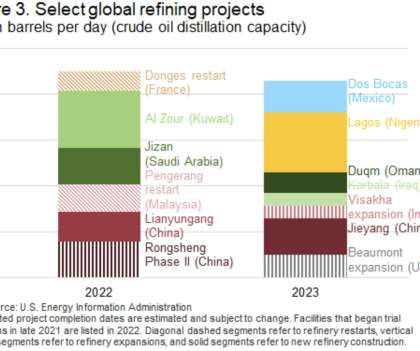EIA: New refineries will increase global refining capacity in 2022 and 2023; China leads
Green Car Congress
JULY 21, 2022
Associated sanctions on Russia—with more than 5 million b/d in crude oil processing capacity—disrupted exports of Russia’s refined products into the global market, and will likely continue to do so as import bans in the European Union and United Kingdom come into full force. million b/d in 2022 and by an additional 1.6
















Let's personalize your content